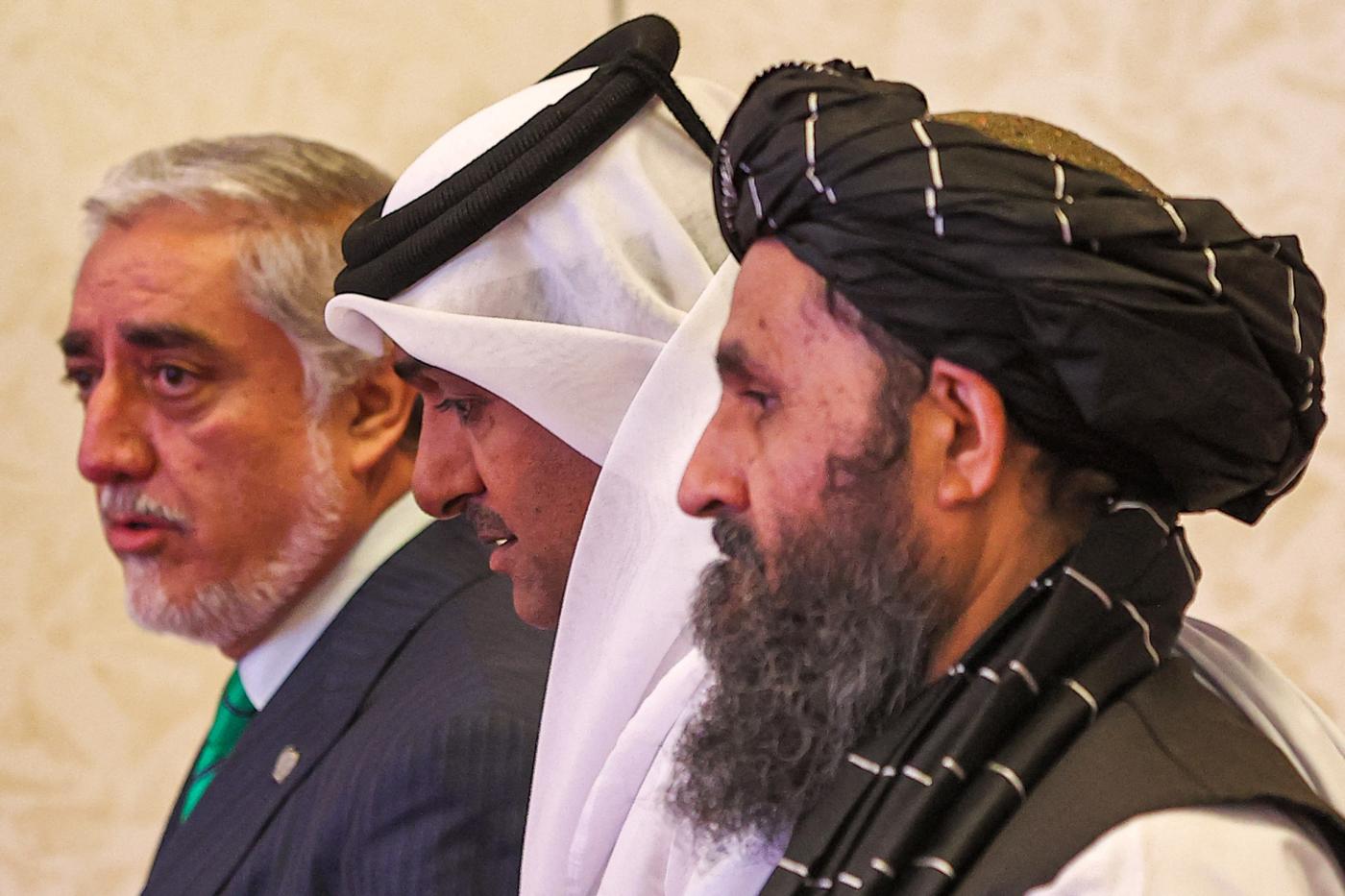Having stated that unfortunately, governments in Afghanistan don’t take their legitimacy from people and indigenous groups, instead, their legitimacy tie with the neighboring countries, regional and trans-regional powers, Dr. Reza Aabedi Gonabad in an interview with the site of Strategic Council for Foreign Relations said:” The post-September 11 governments had no legitimacy among the rank and file people of Afghanistan, and the turnout rate of people in elections represent the reality in the country”.
He added:” This is the case with Taliban, and although the group forms a part of Afghanistan society, but doesn’t represent a far-reaching outlook; that’s why they are trying their very best to attain legitimacy in the region and throughout the world by attracting different countries, even the Americans and the Westerners.
Ample Ground for Competition of Proxy Groups
The university professor said:” In such a situation, Afghanistan has potential capacity to become the scene for the competition of proxy groups; ethnical diversity, poverty, distribution of arms and four decades of internal war in Afghanistan built up capacity for such an atmosphere. Moreover, the role played by ISI (Inter-Service Intelligence) of Pakistan in forming the group, as well as the U.S. performance in transferring terrorist groups to Afghanistan should also be taken into account.
According to Aabedi Gonabad, Governance is the most important problem of Taliban, he explained:” Taliban forces have no specialty but fighting. Today, the method how to practice governance is their most important issue. They have issues ahead of themselves that they should decide on and choose. In this situation, we may witness some dissatisfaction and most probably, some of dissidents may take arm and the atmosphere will turn to violence. In such a situation, the external parties may exploit the dissidents anyone of them who can meet the interests of those countries will be supported by them.
The expert on Afghanistan added that:” If the present situation continues there, some regional or trans-regional countries may enter into competition with each other to set up groups in order to support them and take concessions from Taliban or direct Afghanistan towards an internal war. If Taliban manages to provide a relative security, and in short term leave behind the autumn and winter crisis, it can overcome a small part of the crises.
He referred to Taliban’s requirements to administer the country including and among them economic one and said:” emergence of regional competition will bring extensive and destructive consequences for Afghanistan and we will witness extensive poverty, homelessness, manslaughter and further retardation of the country. Moreover, these issues will affect the neighbors with negative results and the exodus of migrants and insecurity outcomes in economic field or transit of goods in the region will face challenges.
Necessity of Continuous Counseling among Regional Countries
Having stressed on the awareness of the regional countries, particularly Afghanistan neighbors about American scenarios in the country and the importance of continuous counseling in this regards, Aabedi Gonabad added that:” It seems that the end of the U.S. military presence in Afghanistan, a scenario to make the country as a quagmire aiming at engaging the rivals has been pursued. In fact, they welcome these tensions and can establish proxy groups. In the light of their supports to ISIS, they can intensify the insecurity.
He pointed out to the virtual meeting of the foreign ministers of six neighboring countries to Afghanistan and their decision to hold another meeting within the coming one to two months in Tehran and said:” For sure, continuous counseling is necessary in the present condition and these countries should offer their capabilities to facilitate the living of Afghanistan people. Iran will support the setting up of a powerful far-reaching government in the country; an administration that can guarantee the security of borders, prepare an acceptable condition for people, control the influx of migrants to Iran and be able to rely on internal potentials and capacities to minimize the interference of foreign countries in its political structure.
Aabedi Gonabadi referred to some economic plans of countries such as China in Afghanistan and the importance of such plan. He added:” It is necessary that the regional countries employ their initiative and effort to this direction and take effective measures to organize the intra-Afghan talks and play a facilitator role in negotiations. In view of their tremendous influence, cultural ties and longest borders with Afghanistan, Iran and Pakistan can have the most important role and influence in this country.
The analyst on Afghanistan continued:” in view of the role and importance of the regional countries in new era, employing the role in this particular junction is necessary. Iran has always stressed on the setting up of a far-reaching government in Afghanistan. In line with this, continuous exchanges of views with Pakistan is needed to exert pressure on them to help set up such government. Pakistan should also direct Taliban towards setting up a far-reaching government and admitting some rights, civil and social freedoms in a logical way in order to secure the interests of Afghan people, her own interests as well as those of the region.










0 Comments